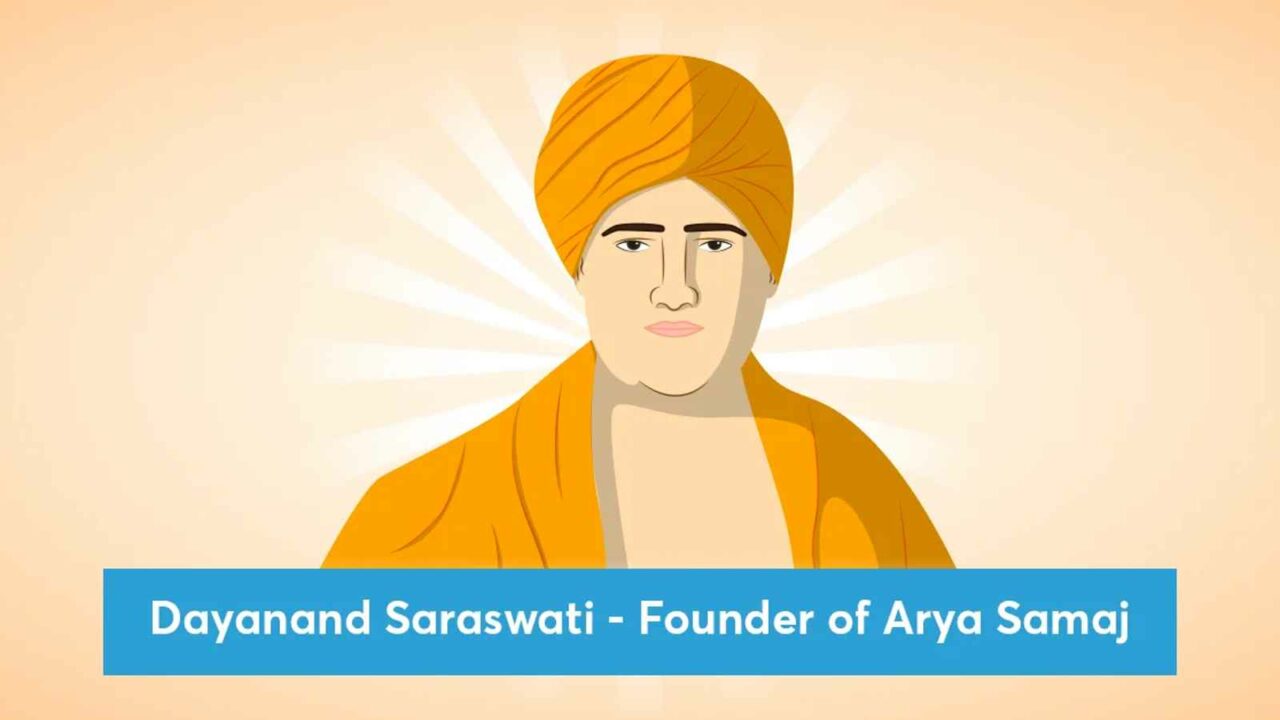Arya Samaj 148th Foundation Day: Arya Samaj is a Hindu reform movement that promotes ideas and behaviour based on the indisputable authority of the Vedas. On April 10, 1875, Dayanand Saraswati, an ascetic known as a sannyasi, founded the samaj.
Arya Samaj was the first Hindu organisation to engage in proselytism. Since 1800, the organisation has laboured to strengthen India’s civil rights movement.
What is Arya Samaj?
Arya Samaj was the first reform movement to engage in proselytising. Arya Samaj adherents disapproved of idolatry and held that God was superior. According to the Arya Samaj, the Vedas are the ultimate source of knowledge, and every Hindu is required to peruse and recite them. By educating Hindus about the Vedas, they promoted women’s equality, fought to end widow remarriages, and outlawed polygamy, child marriage, and Sati.
Arya Samaj Foundation:
The Arya Samaj was founded by Swami Dayananda Saraswati in 1875. (1824–83). He was exceptionally proficient in Sanskrit but had never studied English. “Return to the Vedas,” he declared. He gave the Puranas little thought. Swami studied Vedanta in Mathura under the tutelage of Swami Virajananda, a blind teacher. His perspectives were similar to those of Ram Mohan Roy.
Among the Arya Samaj’s social ideals are gender equality, absolute justice, and fair play between men and men as well as between nations. In addition, widow remarriages and intercaste unions were encouraged.
The primary initiatives shared by Brahmo Samaj and Arya Samaj members were disbelief in polytheism and image worship, hostility to caste-based restrictions, opposition to child marriage, support for the prohibition of sea travel, and advocacy for female education and widow remarriage. Swami Dayananda Saraswati, like other reformers of his time, believed that the Vedas were immutable and infallible.
Arya Samaj Feature:
Considers the Vedas to be the final authority on all knowledge and truth and to be infallible. It was believed that the Puranas and other post-Vedic literature were responsible for the corruption of the Vedic religion. Accepts “Karma” and soul transmigration but rejects the worship of God and reincarnation.
Dayanand was also opposed to the Niyati view of fate and destiny, recognises a singular deity who does not exist tangibly. It rejects Brahman’s dominance of Hindu social and spiritual life. It is inadmissible for Brahmins to assert that they are a bridge between humanity and God. However, they believed that talent should take precedence over birth.
In the social and spiritual lives of Hindus, everyone holds an equal position. It advocated for women’s civil equality. Any form of sexism against women has no place in modern society. It opposed polygamy, child marriage, Sati, and other practices, while encouraging widow remarriage and female education.
It contributed to the propagation of Sanskrit and Hindi and believed that effective education was the only foundation upon which a solid social order could be erected. Arya Samaj did outstanding work in the field of education, particularly for women. Animal sacrifices, religious journeys, sraddhas (feeding the deceased), spells and charms, as well as other socioreligious infractions, are all prohibited. According to Swami Dayanand, these flaws stem from society’s ignorance of Vedic teachings.
CRPF Valour Day (Shaurya Diwas) 2023: Date, Background and Importance
Arya Samaj Principles:
- God was the source of all knowledge.
- God deserves adoration as the only being who is all-knowing, all-powerful, eternal, and the universe’s creator.
- The Vedas are the genuine knowledge books.
- An Arya must always be willing to embrace the truth and reject falsehoods.
- All endeavours should be guided by Dharma, or the deliberate examination of good and evil.
- The primary objective of the Samaj is to promote global material, spiritual, and social well-being.
- Everyone is entitled to just and caring treatment.
- Knowledge must be expanded, while ignorance must be eradicated.
- Everyone’s development should be dependent on everyone else’s.
- The interests of humanity as a whole must take precedence over those of any individual.
Significance:
According to the Arya Samaj, the minimum age for marriage is 25 for men and 16 for women. According to reports, Swami Dayananda mockingly referred to Hindus as “children’s offspring.” After natural disasters such as earthquakes, famines, and floods, the Arya Samaj’s humanitarian services ascended to prominence. Additionally, it was a leader in the advancement of education.
After Dayananda’s death in 1883, the samaj’s activities were continued by influential members. For the samaj, education was of paramount importance. Dayanand Anglo Vedic (D.A.V.) The institute was founded in Lahore in 1886. The Arya Samaj gave Hindus a sense of self-worth and confidence and helped dispel the fallacies of white dominance and Western culture.
The Samaj initiated the Shuddhi (purification) movement, which sought to reintegrate Christians and Muslims into Hindu culture, in order to defend Hinduism against the invasion of Christianity and Islam. During the 1920s, an active Shuddhi movement enhanced social life communication, which eventually snowballed into group political consciousness. A secondary objective of the Shuddhi movement was to convert those who were untouchables and outside of the Hindu caste system into pure caste Hindus.

















